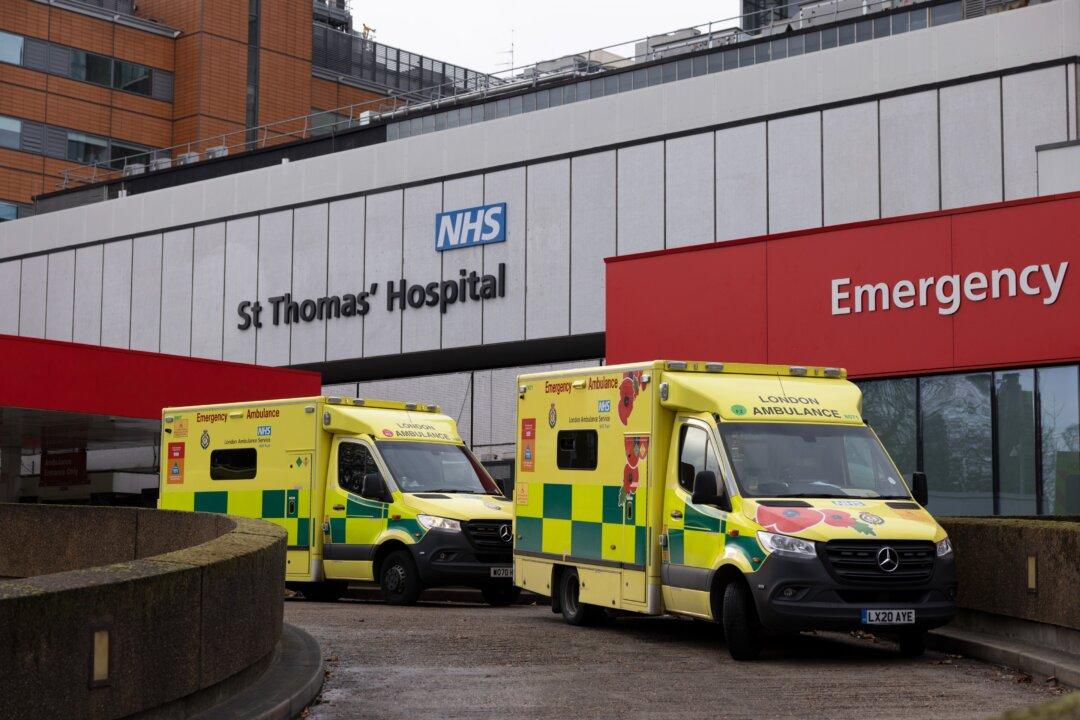Hundreds of British troops will be deployed to cover for ambulance drivers and border staff as ministers seek to mitigate disruptions caused by industrial action.
Arrangements have been made for 1,200 members of the armed forces to plug staffing gaps in the health service and the Border Force during strikes over the Christmas and New Year period, the Cabinet Office announced on Dec. 17.





